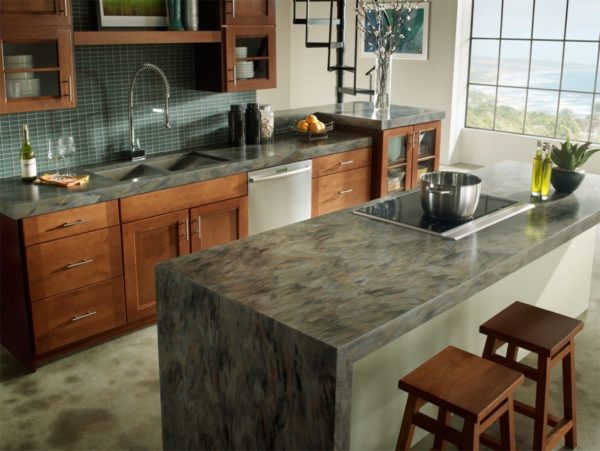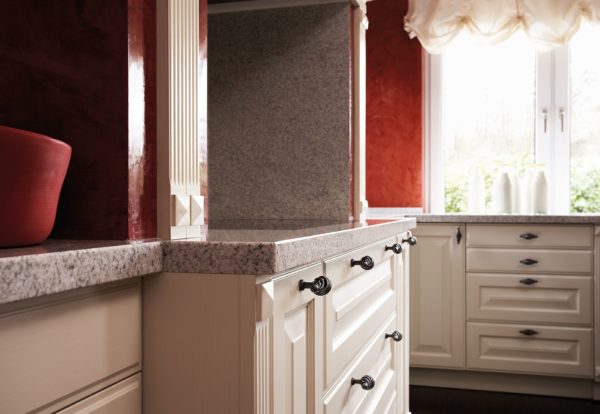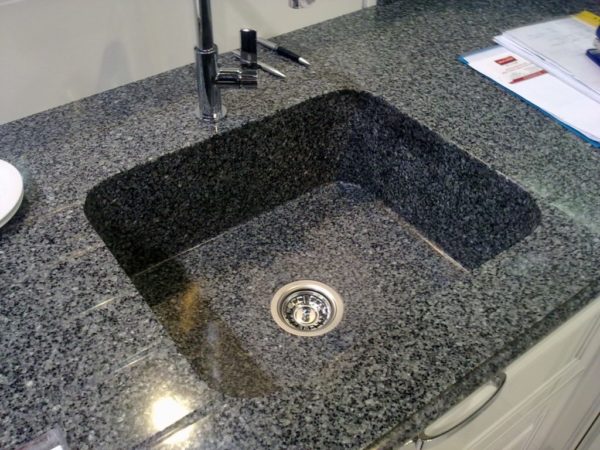Kitchen furniture and countertops must be strong, durable and functional. The kitchen is a place that requires constant care, so ease of cleaning matters. A countertop made of artificial stone meets all these requirements for choosing such an accessory in the kitchen. Thanks to its many benefits, the use of artificial stone in the kitchen is growing in popularity. Natural stone has a high cost, so its imitation is in demand.

Advantages of artificial stone
Artificial stone is a synthetic material, which is obtained by mixing stone mixtures based on polyester and acrylic resins with various additives in the form of coloring pigments and minerals.

The advantages of artificial stone for the manufacture of countertops, bar counters and window sills in the kitchen are undeniable, since the material has high performance properties.
- Artificial stone has a homogeneous structure, it perfectly imitates natural stone.
- It has low porosity, due to the absence of pores, there are no conditions for the development of pathogenic bacteria, which means that it meets sanitary qualities.
- Caring for such countertops is very simple: just wipe the surface with a cloth moistened with a cleaning solution.
- Artificial stone has moisture resistance, it does not absorb moisture, it does not leave stains from coloring substances from fruits and vegetables.
- Does not rot, swell.
- If damage occurs, you can repair it yourself using epoxy.
- Thanks to a variety of shades of color and patterns, countertops made of artificial material look original and aesthetically pleasing.
- The surface is not affected by ultraviolet radiation, does not fade.

The seamless surface of tables and bar counters, sinks contributes to cleanliness and hygiene in the kitchen, as moisture and dirt do not get into the seams, mold does not form. Artificial stone is completely harmless to the human body.
Important! You can make your own artificial stone countertop.

Disadvantages of acrylic stone
Acrylic stone is a polymer of mineral particles, coloring pigments and acrylic resins. Despite the practicality and durability, acrylic stone has disadvantages: it is easily scratched. Scuffs and scratches become noticeable on plain glossy countertops, especially on surfaces made of black, dark gray stones.Another disadvantage of such an artificial material is its instability to temperature extremes; exposure to high temperature leads to whitish spots, minor damage and scratches on the countertop.

But acrylic surfaces are easily restored without dismantling. The restoration operation is performed by grinding and polishing the damaged areas, after which the scratches and defects disappear. On acrylic stone in light shades (light gray and beige), scratches are less noticeable, so when buying, you should give preference to countertops with a light surface. Countertops with a grainy pattern or "stone" texture with stains, interspersed look luxurious and rich.
Did the article help you?
